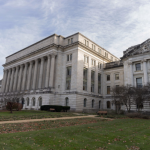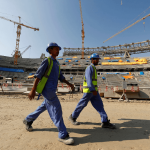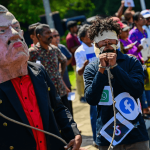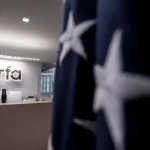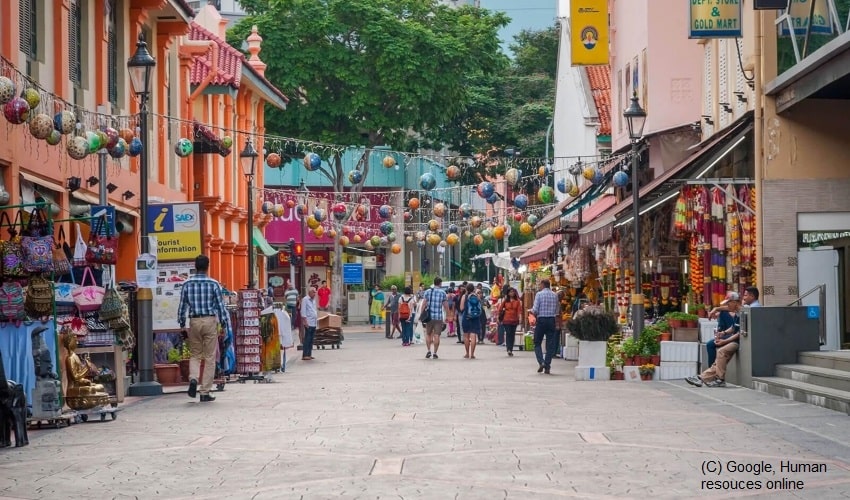
Easing of limitations started in November and it is part of a calibrated path taken by local authorities.
Migrant workers in dormitories in Singapore can now use shared cuisine facilities to prepare their food on vacation days, on top of receiving regular meals provided by their employers on workdays. They can also use recreational spaces such as gyms and sport courts, as long as the hostel operators have been given the green light for them to do so.
This easing of limitations started in November and it is part of a calibrated path taken by local authorities. The purpose is that the menace of Covid-19 cases resurfacing in the shared facilities has not gone away, said the chief of the Ministry of Manpower’s (MOM) Assurance, Care and Engagement (Ace) Group, Mr Tung Yui Fai, on Thursday. He affirmed that it is necessary to keep an eye on the pandemic.
The restrictions on the more than 300,000 labors living in dorms were launched following an increase in coronavirus cases in the overcrowded hostels last April. Notwithstanding the latest developments, the migrant workers are still largely asked to remain in their dormitories except when they are going to work or running primary duties. On rest times, however, they can visit designated entertainment structures.
Big coup for #Singapore, testament to the govt's excellent pandemic management after the low point of mass outbreaks in foreign worker dorms.
— Bhavan Jaipragas 八万 (@jbhavan) December 8, 2020
Hopefully foreign labourers – currently under movement restrictions – will have their full freedom by the time @TheDavosMan comes by. pic.twitter.com/ghTpV7Yops
Mr Tung explained, without specifying a timeframe, that when it comes to migrant workers going back to the community for liveliness, “I think that over time, we will get there, we will push for it. But first of all, the conditions must be right.” One of the requirements will be for contact tracing to be taken effectively, which suggests that all migrant workers have to be furnished with, and use the effectiveness of, a contact tracing tool. The devices that will be utilized by migrant workers residing or working in dormitories, or who are in the development, marine shipyard, and process divisions, are called BluePass tokens.
These pledges, which are now being assigned to the operators, are compatible with the TraceTogether token or app, which implies they can transfer information with one another. Mr Tung, 56, a former brigadier-general in the Singapore Armed Forces, told the mission of the Ace Group, a new MOM division that has taken over the work of the inter-agency task force in charge of migrant worker welfare in dorms, will continue beyond the COVID-19 epidemic.
Ace Group managers are MOM’s eyes and ears on the area. They signal potential problems and collect feedback from groups, including operators and companies, while assisting to recognize and predict what contingency arrangements need to be in place for a future emergency, be it a health or any other crisis. The organization, whose staff force passes 1,000, will also involve stakeholders, including non-governmental organizations that are interested to cooperate with it.
Mr Tung added the deployment of the Forward Assurance and Support Teams (Fast) to serve with dormitories administrators to react quickly to the workers’ essential necessities has proven to be helpful and practical. One area that Ace Group is operating on with its associates is the problem of new housing rules for migrant workers. They are being conducted at the new Quick Build Dormitories that form part of the short-to-medium-term residence for foreign workers in Singapore. Among other elements, each inmate will have 6 sq m of living space, compared with 4.5 sq m of before.
Ace has received feedback from dormitories managers that they may demand extra aid to meet the new criteria, including financial support or a lease extension for their hostels. According to Mr Tung, assistance standards for the operators will be revealed when new housing necessities for migrant laborers are published next year. “Having fast units on the territory to do surveys directly, understanding the challenges… will help develop our policymaking in a more holistic way.” He concluded.

